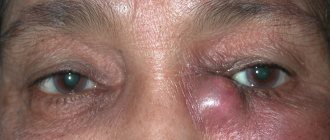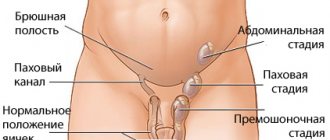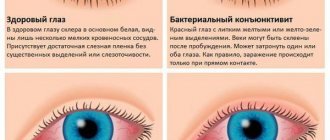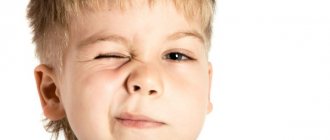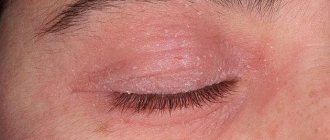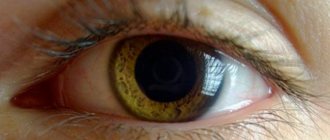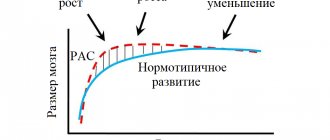What is ADHD?
ADHD is a neurological disorder that causes inattention, impulsivity, and hyperactivity. ADHD symptoms tend to decrease as people get older. The person typically becomes less hyperactive over time, but may still have difficulty concentrating and may be impulsive and risk-taking.
As a result, adults with ADHD have difficulty learning, working, and getting along with others. Adults with ADHD are also prone to anxiety, depression, and low self-esteem.
Causes of ADHD in adults
Doctors are still not sure what causes ADHD.
However, there is growing evidence that genetics may play a role in the development of this condition. In addition to genetics, the following factors can increase the likelihood that a person will have ADHD:
- brain injury
- exposure to environmental factors such as lead during pregnancy or young adulthood
- alcohol and tobacco use during pregnancy
- low birth weight
- premature birth
There is currently no research to suggest that factors such as prolonged television viewing, high sugar consumption, or certain parenting practices cause ADHD. Although these factors can worsen symptoms, there is not enough evidence that they are the main causes of ADHD.
Causes of attention deficit disorder in adults
Experts cannot name the exact reasons that cause attention deficit hyperactivity disorder in adults. But it was possible to identify a number of factors that are associated with the development of the disorder; they begin to affect the body even during the period of formation and gestation of the fetus.
These include:
- family history;
- negative factors influencing the fetus during intrauterine development (alcohol, smoking, previous diseases);
- the presence of chronic diseases in the mother;
- risk of miscarriage during pregnancy;
- complications during childbirth, consequences of cesarean section;
- conflict of Rh factors in mother and child;
- diseases and pathologies of newborn development;
- the negative impact of strong medications during pregnancy or in the first years of a child’s life;
- bad ecology.
Any stressful situations that negatively affect the psyche can provoke vivid manifestations of the disease, if an adult has it. Therefore, a person needs to dose both mental and physical activity to avoid exacerbations of ADHD.
ADHD in adults - symptoms
Some symptoms of ADHD in adults:
- the person is easily distracted and lacks attention, especially when bored
- does not listen to others, including interrupting and finishing sentences
- person has difficulty following instructions
- difficult to organize and complete activities
- he becomes restless and unable to sit still
- can be forgetful
- easily becomes irritable, impatient, or frustrated
- impulsive
Symptoms of attention deficit disorder in adults
The symptoms of ADHD in adults are varied, so they are divided into several components. Each of them includes special features.
Concentration
People suffering from attention deficit disorder have problems concentrating that affect many areas of life as well as daily activities. The syndrome is characterized by the following symptoms:
- sudden distraction from business, conversation, work;
- high level of distraction from processes;
- inability to concentrate on a specific action or phenomenon;
- lack of attention to various details;
- abandoning tasks without completing them;
- difficulties with transmitting information and retelling dialogues.
In some cases, the symptom begins to work in the opposite way: hyperconcentration appears, the patient begins to carry out tasks or work with complete immersion and loss of a sense of time and attention to surrounding events.
Organization
Disorganization is another problem that adults with attention deficit disorder face. It manifests itself in almost all patients and negatively affects the efficiency and success of various activities and tasks. It may appear like this:
- lack of time for household chores;
- procrastination, postponing tasks for later;
- difficulties with starting and finishing work;
- lack of sense of time;
- forgetfulness, frequent loss of small things (keys, remote control, gloves, etc.).
Emotions
Adults with ADHD often experience unpleasant emotions. They worry, get angry, worry, sometimes even for no apparent reason. This manifests itself in the following:
- lack of control over emotions;
- overwork;
- frequent mood swings, irritability;
- low self-esteem, resentment;
- tendency to think about bad things.
Such emotional manifestations create difficulties in communicating with other people, so patients with ADHD often close themselves off and prefer not to get close to anyone.
Hyperactivity
Excessive energy and activity is one of the main symptoms of attention deficit disorder. It does not allow a person to focus on one thing, sit still and remain calm when difficulties arise. The symptom is also characterized by:
- constant desire to do something;
- thirst for vivid impressions and intense emotions;
- doing many things at the same time;
- boredom during monotonous work;
- talkativeness, frequent changes of thoughts.
Impulsiveness
The inability to control one's actions and words is more common in men than in women. It causes a lot of discomfort and negatively affects relationships with other people. Appears in:
- inability to maintain self-control;
- sharp expressions of one’s opinion;
- interrupting the interlocutor, inattention to his remarks;
- spontaneous desire to commit dangerous actions.
The craving for spontaneous risky actions often develops into addiction.
ADHD in adults - diagnosis
Adults with ADHD are diagnosed based on criteria in the Diagnostic and Statistical Manual of Mental Disorders (DSM-5), which describes the symptoms of mental illness.
Based on the symptoms, the doctor will decide which of the three types of ADHD the patient has. Three types of ADHD:
- ADHD combined type is the most common type of ADHD. The person exhibits impulsive and hyperactive behavior, is easily distracted, and has difficulty concentrating.
- ADHD impulsive/hyperactive type is the least common type. The person shows signs of hyperactivity and is constantly moving. He shows no signs of inattention.
- ADHD with inattention – People with this type of ADHD do not show signs of hyperactivity or impulsivity. Instead, the person is easily distracted and has difficulty concentrating. Basically, the “inattentive type” is the type that is often referred to as ADD because the term does not contain the word “hyperactivity.”
To be diagnosed with ADHD in an adult, the adult must have more than five of the following symptoms, lasting for 6 months.
Inattention
A person often:
- does not pay attention to detail or makes mistakes in work or other activities
- has difficulty paying attention to tasks and activities
- doesn't listen when people talk to him
- does not finish housework or workplace responsibilities
- have difficulty organizing events and tasks
- avoids or is reluctant to perform tasks that require mental effort for long periods of time
- loses things needed to complete tasks and activities
- easily distracted
- forgetful in daily activities
Hyperactive impulsivity
A person often:
- fidgets with legs or arms or cannot sit still
- gets up when he should be sitting
- gets restless
- can be very active
- talks a lot
- interrupts with questions
- has difficulty waiting his turn
- interrupts others
Other criteria
In addition to some of the above symptoms, there are:
- inattention or hyperactive-impulsive symptoms before age 12
- symptoms both at home and at work
- evidence that symptoms interfere with daily activities
- symptoms must not be the result of another mental health condition such as anxiety or depression
Attention deficit hyperactivity disorder (ADHD) in adults
What is Attention Deficit Hyperactivity Disorder (ADHD)?
Attention deficit hyperactivity disorder (ADHD) is one of the most easily identified developmental problems in childhood. This condition is characterized by inattention, hyperactivity and impulsivity. It is now known that these symptoms can persist in a child with ADHD and do not improve with age in approximately 60% of cases. This represents about 4% of the adult US population, or 8 million people. However, ADHD in adults is rarely noticed and therefore rarely treated.
ADHD in adults
Adults with ADHD may have trouble following directions, remembering information, concentrating, planning, and completing tasks under tight deadlines. If these problems are not addressed properly, they can lead to related behavioral, emotional, social, work and school problems.
Statistics regarding ADHD in adults
- ADHD affects 3% to 5% of school-age children, and 60% of them will have the disorder even as adults.
- Prevalence rates for ADHD in adults are not as well defined as in children, but they are clearly within the 1% to 5% range.
- Boys are more likely to develop ADHD in childhood than girls, but the rates equalize with age.
Common problems and behaviors in adults with ADHD
The following behavioral characteristics and problems may be a direct result of ADHD or similar coping difficulties:
- Constant forgetfulness and lack of punctuality.
- Anxiety.
- Low self-esteem.
- Problems with employment.
- Problems with anger control.
- Impulsiveness.
- Substance abuse and addiction.
- Poor organizational skills.
- Putting off or not completing tasks on time.
- Low stress resistance.
- Chronic boredom.
- Difficulty concentrating when reading.
- Mood swings.
- Depression.
- Problems in relationships with people.
Such behaviors can manifest themselves in both mild and aggravated forms, and can be situational or present constantly. Some adults with ADHD are able to pay attention when a subject interests them. Others may find it difficult to concentrate under any circumstances. Some people look for stimulating factors, while others, on the contrary, avoid them. In addition, adults with ADHD may be withdrawn and antisocial, or oversocialized and unable to be alone.
School-Related Impairment Associated with ADHD in Adults
Adults suffering from ADHD may have the following problems:
- Worse academic performance, lack of personal achievements.
- Bad behavior at school.
- The need to stay a second year in the same class.
- Dropping out of school.
Work-related impairments associated with ADHD in adults
Adults suffering from ADHD may have the following problems:
- Frequent job changes and low productivity.
- Low level of achievement at work, regardless of mental state.
Social impairments associated with ADHD in adults
Adults suffering from ADHD may have the following problems:
- Quite low socio-economic status.
- Violation of traffic rules, and as a result, fines for speeding, deprivation of a driver’s license; frequent accidents; low assessment of driving qualifications, both one’s own and others.
- Increased use of illegal substances.
- Smoking.
- Frequent incorrect psychological self-esteem.
Relationship impairments associated with ADHD in adults
Adults suffering from ADHD may have the following problems:
- Difficulties in marriage or several attempts to start a family.
- More often they separate from their partners or get divorced.
Most of these difficulties improve with treatment of the disorder and may gradually subside with proper treatment.
Next »
ADHD in adults - treatment
Drug treatment
Drug treatment usually consists of stimulants or non-stimulants. Stimulants increase the amount of dopamine and norepinephrine in the brain. These are two chemicals that improve attention and concentration.
However, stimulants may not be suitable for patients with high blood pressure, seizures, liver or kidney disease, or anxiety disorders.
Non-stimulants are slower but also improve concentration and attention and reduce impulsivity.
Some doctors may prescribe stimulants and non-stimulants to the same person to increase their effectiveness.
Psychotherapeutic therapy
Behavioral and cognitive behavioral therapy are aimed at helping the patient change their behavioral habits and teach methods of desired behavior. Doctors may also suggest joining a support group.
Non-drug ways to help
Among the non-drug treatment methods for attention deficit disorder, the most effective are:
- Psychotherapy. She teaches the child to accept himself as he is. Her task is not to work with symptoms, but to find tools for managing emotions. By and large, the psychotherapist minimizes the patient’s concomitant disorders (oppression, depression, guilt, etc.).
- Behavioral therapy. It is aimed at helping the child change the way they think. It not only teaches you to understand yourself, like psychotherapy, but gradually change from the inside. Therapy can help you cope with tasks as simple as preparing homework and as complex as managing your anger in a critical situation.
- Development of interaction skills in society. In this case, the doctor tries to model the behavior of a child with the syndrome in different life circumstances, for example, calmly wait his turn, share toys, and steadfastly respond to children’s teasing (teasing). These practices are very important for building interpersonal relationships in childhood.
- Support groups. Unfortunately, this is not very developed in our country, but even now parents whose children suffer from the disease are trying to unite in groups to jointly listen to educational lectures on ADD, share successes and failures, and find out how others cope with the problem.
- Training parents in additional skills. There are different systems for correcting child behavior that are offered to parents. Among them, a system for evaluating actions and “time out” (isolating a child in a quiet place if he gets out of control). The latter method is used not for punishment, but for removal from stimulating factors.
Parents must learn to create situations in which it is easier for their child to succeed. For example, games that involve only 2-3 people are good. This will prevent the child from becoming overexcited. Not least important are stress management techniques (meditation, relaxation).
Accompanying illnesses
According to a 2021 article, there are several conditions that adults with ADHD may have.
Bipolar disorder
Bipolar disorder is a condition that causes people to be restless, talkative, and distracted. With this condition, there may also be periods of depressive and manic moods. Between 9.5% and 21.2% of patients with bipolar disorder also have ADHD, and between 5.1% and 47.1% of adults with ADHD have bipolar disorder.
Researchers suggest that having ADHD or bipolar disorder before age 18 increases the likelihood of developing the other condition over time.
Depression
Depression is another condition that typically coexists with ADHD. Some studies have shown that between 18.6% and 53.3% of adults with ADHD also suffer from depression. People who have both ADHD and depression self-report that their quality of life is lower than that of those who have only depression.
Anxiety disorder
Adults with ADHD are also more likely to suffer from anxiety than those without it. 50% of adults with ADHD have an anxiety disorder.
Adults with ADHD who have social phobia, such as fear of meeting or talking to people, are more common than adults with ADHD who experience panic disorder.
Substance use
According to a 2021 article, alcohol, nicotine, cannabis, and cocaine use are among the most common coexisting conditions with ADHD in adults. Some researchers suggest that substance use is twice as common in people with ADHD than in those without the condition. The most common type of substance use among adults with ADHD is cigarette use. People with ADHD tend to be more dependent on nicotine than those without ADHD.
Personality disorder
The same 2021 study reports that more than 50% of adults with ADHD have a personality disorder and that 25% of adults with ADHD have two or more personality disorders.

